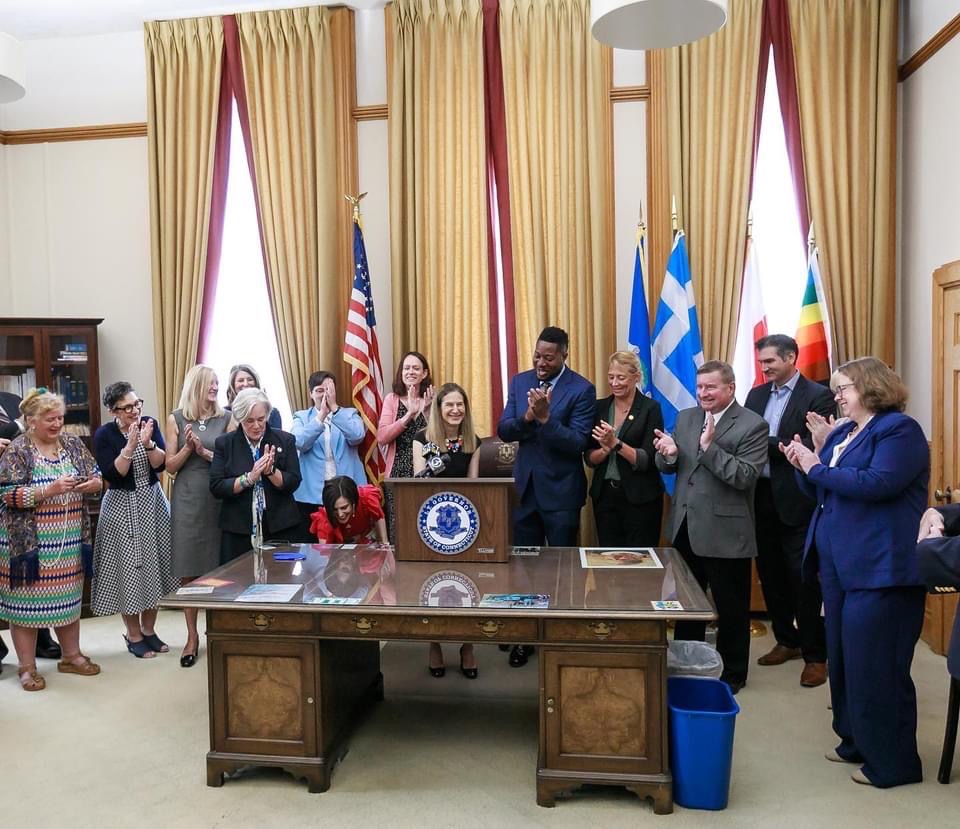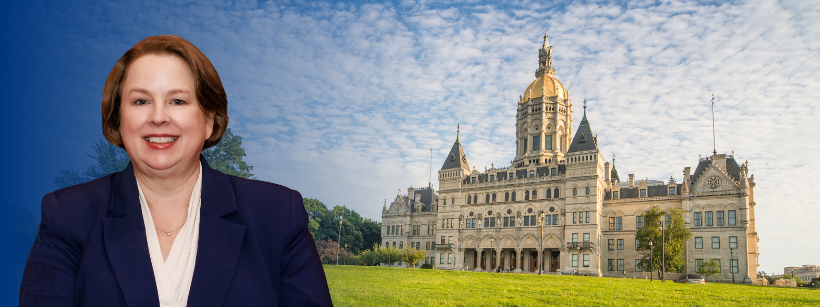Rep. Keitt Applauds Passage & Signing of Bill Banning Child Marriage in Connecticut
June 23, 2023Bill closes a loophole that allowed 16- and 17-year-olds to marry
State Representative Sarah Keitt (D-Fairfield/Trumbull) applauded the June 23 bill signing that bans child marriage in Connecticut.
Friday's bill signing was hosted by Lt. Governor Susan Bysiewicz, serving in her capacity as acting governor. The bill, formerly known as HB 6569, is now known as Public Act No. 23-44.
"It's about time Connecticut closed the loophole that allowed 16- and 17-year-olds to get married," said Rep. Keitt. "Connecticut was one of the few states in New England that had this loophole, and we certainly didn't want our state to become the child marriage destination of the East."
"When we allow child marriage, we deprive children of their childhood - and their future," said Lt. Governor Susan Bysiewicz. "The legislature has set a number of reasonable restrictions for persons under the age of 18 – and through this new law we are eliminating a practice that undermines our children’s health, safety, education, and future economic opportunities."
In 2017, Connecticut passed legislation to ban marriage for children 15 years of age and under, but it didn't cover 16-and 17-year-olds. Under the current state law, a probate judge could issue marriage licenses to 16 and 17-year-olds with the written consent of a parent or guardian. Prior to the enactment of that law, Connecticut did not have any age requirement for marriage. Between 2000 and 2021, there were 1,251 child marriages in Connecticut. In the six years that have passed since the minimum age was raised to 16, there have been 33.
New Jersey (2018), Pennsylvania (2020), Rhode Island and New York (2021), and Massachusetts (2022) all passed legislation prohibiting child marriage, with Vermont joining in 2023.
In March, advocates, including members of Unchained at Last, shared stories of forced marriage, being trapped in abusive marriages, and being shunned by their families. One survivor named Jen, who now lives in New England, was 14 when a family friend started to groom her. At 16, she was married off to the 44-year-old man. Even in the state she previously lived in, her marriage was considered illegal, as her husband was over the age of 25. She had five pregnancies but only has two living children. She dropped out of high school and tried killing herself several times. It wasn't until she took her sister to a Marine recruiter that she was able to make a change in her own life. The recruiter asked her "What are you doing with your life?" With that, she scored a 99 on the ASVAB test, told her husband just days before she was set to leave for training, and told him she would be back. She never returned. When she moved to New England, she was shocked to find Connecticut still allowed 16- and 17-year-olds to marry.
"I want my story to be the last one you have to hear like this," Jen said.
According to UNICEF, girls who marry before 18 are more likely to experience domestic violence and less likely to remain in school. They have worse economic and health outcomes than their unmarried peers, which are eventually passed down to their own children, straining a country’s capacity to provide quality health and education services. Child brides often become pregnant during adolescence, when the risk of complications during pregnancy and childbirth increases. The practice can also isolate girls from family and friends, taking a heavy toll on their mental health.
Connecticut's bill had support from both sides of the aisle in the House and passed unanimously in the Senate. Connecticut is now the ninth state to pass legislation prohibiting child marriage.
The new law goes into effect on July 1, 2023.
###






